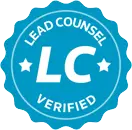Divorce law in Indiana can be very complicated and how you act or fail to act during the process of getting a divorce can have a great effect on your life, finances, and family relationships. While you are never required to hire counsel and are able to act as your own attorney, it is always highly recommended that you at least seek the advice of an attorney before taking any action in court. People acting as their own attorneys are held to the same standard as licensed attorneys and an attorney can assist you greatly in all stages of a divorce. Even when matters are agreed upon and seem altogether much simpler than your average divorce, small errors in documents or the understanding of agreements can have lasting, detrimental effects on your life. An attorney brings knowledge and experience that your average non-attorney does not have, and it is always recommended that you at least consult with an attorney before making any major life decisions, such as in a divorce. If you would like to speak to an attorney in our firm, please contact us at any time and we would be happy to sit down with you and discuss your case.
FAQs
Family Law-Divorce FAQ's
What are the legal grounds for obtaining divorce?
Indiana is a “no fault” State, meaning that a person can get divorced for any reason. There are requirements regarding residency in the State of Indiana that you must understand and there are also requirements of residency in the County that you wish to file your divorce. Other than that, one aspect of divorce that comes up frequently is when an individual is pregnant during the pendency of a divorce. Generally speaking, the statute governing divorces does not allow a divorce to be finalized until the wife is no longer pregnant. That being said, this is a very complicated issue and if you are in this sort of situation, you should consult an attorney immediately. Other than these considerations, there are some factual matters that need to be brought to the attention of the court, but it being a no fault State, no fault must be assumed by any party, and parties may amicably wish to separate simply by stating that their marriage has been irretrievably broken.
How do courts determine who gets custody of children in a divorce?
Determination of custody arrangements is governed by Indiana Code, and a judge will look at the statute, hear the evidence and make a decision as to what the judge believes is in the best interests of the child. In all child-related matters, the best interest of the child is always of paramount concern, and courts will need to determine what is best for a child by hearing evidence. Generally speaking, this is done through testimony of the parties and the production of documentary evidence to show that the custody arrangement being sought by any party is supported by facts. On occasion, in more complex cases, courts will enlist the help of Guardians ad litem, CASAs, or other individuals so as to take a deeper look at some of the issues that may assist the court in determining what is best for the minor child. An attorney will help you in presenting this evidence to the court and attempt to convince the judge of what is best for the child and in your interests.
What is joint custody?
Many people ask about joint custody and usually do so when parties are separating and divorcing amicably. The term “joint custody” sometimes means different things, but most of the time, people are talking about a parenting plan where individuals share parenting time with the minor children in a roughly equal fashion. There is also an issue of legal custody, which is a question of who in the child’s life is able to make major life decisions on behalf of the child. Generally speaking, if a party has sole legal custody, then they make determinations of major life decisions such as education, religion, health, etc., and the other party is not able to weigh in on those decisions. Joint legal custody means that two parents will need to agree on changes in the child’s major life decisions before any changes can be made.
How is child support determined in divorce?
The rules regarding child support are governed by the Indiana Child Support Guidelines, which are provided by the Indiana Supreme Court. The parties’ incomes, prior and subsequent born children, health insurance premiums, work-related childcare, overnight parenting time, and other factors are involved in determining what is an accurate child support obligation for either party to pay the other. While at first glance, this may seem very simple, as there is a calculator provided by the Indiana Supreme Court, child support can be very complicated, and the guidelines provide a significant amount of information to deal with just about any parenting situation that you can imagine. Generally speaking, a court will follow what the child support guidelines say unless there is a reason to deviate from these guidelines. Court may deviate from it for the purpose of accounting for temporary work stoppage, accounting for medical conditions that are disclosed at a hearing, or other such life circumstances that come up such that make child support in any given case an unreasonable amount.
House, the car, the bank accounts, etc. are all in my spouse’s name. Does that mean that my spouse gets to keep everything in the divorce?
The simple answer is probably not. In divorce cases, the property of each party is considered property of the “marital estate” and is subject to division by a court. Oftentimes, the court will order an exchange of property, such as a vehicle or a parcel of real estate, from one party to the other as a way to distribute the property at the end of a divorce. This situation can get more complicated when debts are attached to these assets and said assets need to either be paid off or be financed so that the other party can take possession of them at the end of the divorce, but generally speaking, a court will attempt to divide the property in a way that is fair and reasonable and will include those considerations in this decision.
I want a divorce, but my spouse says he or she will never sign the paperwork. What do I do?
You cannot force another person to sign a contract against their will. It is generally preferable that parties come to agreements in these sorts of matters, but even the most reasonable of individuals sometimes disagree. If you have presented documents to your spouse and your spouse is refusing to participate in the divorce, then your only recourse at that point is to seek action through the courts. If an individual does not agree to a distribution of assets and debts or a custody arrangement as a part of finalizing a divorce, it will be a judge’s decision, and the Judge will make this decision based on facts presented to the Judge. It is very common for one individual in a marriage to seek a “quick” divorce so that both parties can walk away. When the other party balks at this suggestion, the situation can be very frustrating. Attorneys will attempt to work with one another in facilitating agreements if the parties are open and willing to engage in good faith dialogue. When parties are unable to reach an agreement, the lawyers will take the case to court and the judge will make the decision on how the finalized divorce decree will look. Divorce hearings are very common and are nothing to be afraid of because, in the end, sometimes this is the only way to finalize your divorce.
My spouse cheated on me, spent our money/went to jail/has drug problems. It should be easy to win my case since my spouse did so many terrible things, right?
The answer to this question depends on what you mean by “winning”. In child-related matters, oftentimes, the party that is engaging in reckless behavior will have a harder time having custody of the minor children. Every case is different and should be approached individually, but this is a general rule, and attorneys will guide you through this process. With regard to assets, all divorces start at a presumed 50/50 split of all assets. This equal split can be rebutted by presenting certain evidence, but that is where you start. In some cases, when an individual is acting in such a way that assets of the marriage have been diminished due to their behavior, such as infidelity or compulsive gambling, a party can allege that the other party engaged in “marital waste” and that the 50/50 presumed split of the assets should be modified to account for the lost value from the other party’s bad behavior. So, in a sense, by proving this, you do “win” by taking more than 50% of the marital estate and an attorney will guide you through this process if such is the case.
How are retirement accounts and pensions handled in divorce?
Retirement accounts and pensions are assets of marriages that are subject to division by a court. Generally speaking, a value will be assigned to these assets and either the parties or the court will decide on how these are separated. Often times, with financial instruments such as 401Ks and IRAs, your attorney will simply be able to separate out the value of these assets that is coming to you and put them in your own name. Rarely do parties drain their retirement accounts, thus saving money on taxes and other fees. Pensions tend to be more complicated in that they are amounts of money that will be paid over time. Attorneys will generally have them appraised by an expert to get a present-day value of the pension. This value will be subject to division by the court and the court may order a structured payment to the other party over time when that party starts to receive pension returns. Again, pensions are extremely complicated, and it is highly recommended that you consult an attorney if you are in this sort of situation and a pension is a part of your marital estate.
Can I change my name?
You will be given the opportunity to restore your maiden name as a part of the decree if you make this request. You should alert your attorney to this desire as soon as you are able so that you make sure that this is done within your divorce. Name changes are allowed by Indiana law, but to have a name change done outside of a divorce after one is completed can be very difficult and expensive.
My ex will not follow the terms of our divorce decree. What do I do?
In general, people are obliged to follow court orders. If a person is not obeying a court order and has the ability to obey a court order, that failure to follow the order will need to be brought to the attention of the court. Attorneys will file documents requesting that the court hold a hearing on this allegation of a failure to comply and the court will take evidence. If the court finds that an individual is violating the terms of an order, the court may use its coercive power to attempt to gain compliance. This can be done in many different ways, including requiring immediate action to remedy any wrong, the assessment of attorney’s fees against the party for their failure to comply with the order, or in more extreme cases, can threaten an individual with contempt of court, which penalties can include jail time and fines. A party’s failure to comply with an order can be very frustrating because you have received your divorce, but you are still in court litigating the compliance with the requirements of the court. That being said, once you have a divorce decree, usually the requirements are spelled out very succinctly and it is not difficult to understand what each party must do. Different courts take different approaches to this and you should speak to your attorney about the particular court that you are in prior to appearing in court on such a matter.
What is the difference between legal custody and physical custody?
Legal custody is an arrangement whereby the order defines the ability of either party to make decisions on behalf of the child that involve major life issues. Generally speaking, legal custody only pertains to issues regarding schooling, non-emergency healthcare, religious observance, and discipline. When one individual has legal custody, that individual is able to make those decisions on behalf of the child. If this legal custody is joint, then the parties must agree. Oftentimes, parties will put in writing that though they share joint legal custody, they also agree that a child will go to a particular school or practice a particular religion so as to further avoid any future conflict. Joint legal custody is appropriate when parties are able to communicate, have similar values, and are able to cooperate in making major life decisions. If they are unable to do so, often times a court will order that one party have sole legal custody so as to avoid conflict in the case and make sure that the child’s needs are getting taken care of and not stymied by constant argument.
How much will this cost?
The answer to this depends on the type of divorce that you have and how complicated it can be. An attorney will never be able to tell you exactly how much time and energy it will take to finalize your divorce because you have multiple parties involved and it is never possible to speculate on the ease of obtaining your divorce. Generally speaking, the more you and your spouse can agree, the cheaper the divorce will be overall. Fighting takes time and lawyers charge for their time. In addition to this, if the court requires parties to engage Guardians ad litem, psychologists, or other third parties to evaluate the situation, those costs can make the overall expenses in your case grow rapidly. Our attorneys will assist you in managing your costs and keeping a firm eye on what you are being billed for, what this is going to cost, and what potential costs in the future will look like. Our attorneys will work with you to make sure that you receive cost-effective representation with positive results.
I want to move away with my child/My ex wants to move and take our child away. Can I/they do this?
First, unless you’re moving less than 20 miles away and not changing school districts, anytime a parent wants to relocate, they need to provide notice of their intent to relocate to the other parent and file it with the court. The contents of the notice are specifically covered by Indiana law. Once this is done, the other parent has the option to object to the move or consent. If an objection is made, a hearing will be held, and each side will present evidence as to why the move is or is not in the best interests on the child(ren). Ultimately, a court cannot forbid someone from moving. They could, however, say that should the custodial parent move, custody is to switch to the other parent. A lawyer will help you in crafting and presenting the best argument as to why the relocation is or is not good for the child(ren), and help you gather appropriate and admissible evidence to aid in your cause.
How long do I have to pay child support?
Typically, until your child is emancipated, which is 19. There are some exceptions, however. If your child is disabled or incapacitated in some way, it is possible you may have to pay child support indefinitely. If you have a marital settlement agreement that states you will pay child support beyond the age of 19, then you will have to do so.
My ex won’t let me see my kids, what can I do?
This is a common problem. Usually, the first step is to pursue contempt (assuming you have a court order for parenting time). This means filing a petition with the Court and letting them know that your ex is not following the Court’s order. The Court will frequently take some sort of action. The actions taken by the Court usually grow in severity as the number of contempt findings increases. At some point, it may become appropriate to ask the Court to change custody of the child(ren).
Estate Planning FAQ's
Why do I need an estate plan?
You have an estate plan whether you know it or not. Either you have one you have consciously prepared or one that has been created for you by state intestate succession laws and by the boilerplate provisions of your life insurance or annuity policies, individual retirement account documents, employer 401k plan documents, bank account documents, etc.
What things do I need to consider in my estate plan?
Your estate plan should cover not only the transfer of your property interests upon your death but also the management of your property interests during your life in the event of your incapacitation, as well as non-financial concerns such as decisions regarding your medical care.
Is Jointly Owned Property a good estate Plan?
It can be, however, you should consider such issues as loss of control of jointly owned property, actions by creditors (and estranged spouses) of joint owners to attach jointly owned property, income tax considerations such as loss of stepped-up basis, as the basis for property acquired from a deceased (inherited asset) is adjusted to fair market value at the date of death. Jointly owned property should be included in consideration of the use of non-probate transfers in your estate plan in general. For instance, real estate may be transferred by a transfer on death (“TOD”) deed, instead of retitling real estate as joint owners with rights of survivorship during your lifetime. A TOD deed doesn’t actually transfer ownership of the real estate until you die without revoking or making any changes in the real estate title before you die.
How do I make sure my grandchildren get the money I leave to their dad, and make sure it isn’t taken by their stepmother?
You can make the gift to your grandchildren to a trust controlled by a trustee until they reach what you consider an appropriate age, giving the trustee the power to make or withhold distributions to the grandchildren.
What is health care or medical power of attorney?
A document in which you formally appoint a person to make health-care decisions for you when you lack the capacity to make them for yourself (this could be short-term or long-term). Some states will allow you to customize your own form. Most states have a standard format that is easily recognizable by healthcare providers.
What is a living will?
A living will declaration is a formal document and is an announcement to the world that you do not want to be kept alive by artificial means. You do not want heroic measures taken to keep you alive.
What is a durable power of attorney?
A durable power of attorney is a formal appointment of an agent (called an “attorney-in-fact”) to conduct your financial or business affairs in your name if you cannot do so yourself. What makes a power of attorney “durable” is the language in the document that provides that the power of attorney will remain in effect even if you become incapacitated. Thus, if you do become incapacitated for a short or long period of time, someone will have the power and authority to act on your behalf. This can be a very broad, all-inclusive power, or it may be limited to certain business affairs. This document may be broadened to designate who you would like to serve as your guardian if one were required (thus, if you become incapacitated, because you haven’t died, your will does not come into play). A general durable power of attorney can (and usually is intended to) make a guardianship unnecessary. A guardian does not have power, duty, or liability with respect to property or personal health care decisions that are subject to a valid power of attorney. A guardian has no power to revoke or amend a valid power of attorney unless specifically directed to revoke or amend the power of attorney by a court order on behalf of the principal. A court may not enter an order to revoke or amend a power of attorney without a hearing.
What is a will?
A will, sometimes called a “last will and testament,” is a document that states your final wishes concerning the disposition of your property. It is presented to a county probate court after your death, and the court is to ensure that your final wishes are carried out.
What happens if you die without a will?
If you die without a will, you are said to have died “intestate,” and ownership of your “probate assets” will pass according to the intestate succession laws of your state (or the state where your real estate is located). By “probate assets,” I mean all of the property, whether real or personal, tangible or intangible, wherever located, that you own at the time of your death and fail to dispose of effectively other than by an estate administration. “Probate assets,” among other things, do NOT include (1) any property that you own at your death as a joint tenant or tenant by the entirety with any person who survives you, (2) any benefits payable other than to your estate by reason of your death under any policy of insurance on your life, any annuity policy owned by you, or any other contract calling for the payment of benefits by reason of your death, (3) any property held at your death in a trust created by you during your lifetime, or (4) any property over which you may have a power of appointment.
What is a trust?
One component of an estate plan can be a “trust.” A trust is a fiduciary arrangement that allows a third party, or trustee, to hold assets on behalf of a beneficiary or beneficiaries. Trusts can be arranged in many ways and can specify exactly how and when the assets pass to the beneficiaries. There are two basic types of trusts: “living” or “inter-vivos” trusts and testamentary trusts. If a trust is created during your lifetime, then it is a “living” or “inter-vivos” trust. Alternatively, a testamentary trust is a trust created in a will and is established only after a person’s death, when the will goes into effect. Living trusts can be “revocable,” which allows you to maintain control of the assets in the trust and gives you the freedom to change the terms of the trust at any point during your life, or can be “irrevocable,” in which you relinquish control of the assets in the trust and are not typically able to make changes to the trust without consent from the beneficiary. Irrevocable living trusts are not subject to estate taxes.
How are trusts different than wills?
Wills and trusts are both types of legal instruments used to manage and distribute a deceased person’s assets. A will becomes valid only when its creator dies, and it is up to the executor, or personal representative–named by the creator of the will–to distribute the property in accordance with the terms of the will. In contrast, a trust can be established during the owner’s lifetime (a “living” or “inter-vivos” trust) to manage the owner’s property for the remainder of his lifetime, as well as for the benefit of the owner’s family after the owner’s death, or it can take effect after he dies (a testamentary trust). A will is a public record, while a “living” or “inter-vivos” trust will seldom be presented to a court absent a need to resolve a dispute or ambiguity in the trust. There are advantages to both wills and trusts, and an attorney should be consulted regarding either one.
Are there times when a trust is preferred over a will?
Yes. One advantage of a trust is privacy since a trust is seldom made a public document, as is a will. Also, a trust can manage the owner’s property for the remainder of his lifetime, as well as for the benefit of the owner’s family after the owner’s death. The terms of a will can’t be challenged until you die and it is offered for probate, while a trust can be set into operation as soon as it is created and funded with assets. Some have suggested use of a trust to affect the extent to which a surviving spouse is entitled to take against the will under IC 29-1-3-1.
What is a revocable trust?
Living trusts can be “revocable,” which allows you to maintain control of all the assets in the trust and give you the freedom to change the terms of the trust at any point during your life.
What is a testamentary trust?
A testamentary trust is created in a will and is established only after a person’s death when the will goes into effect.







